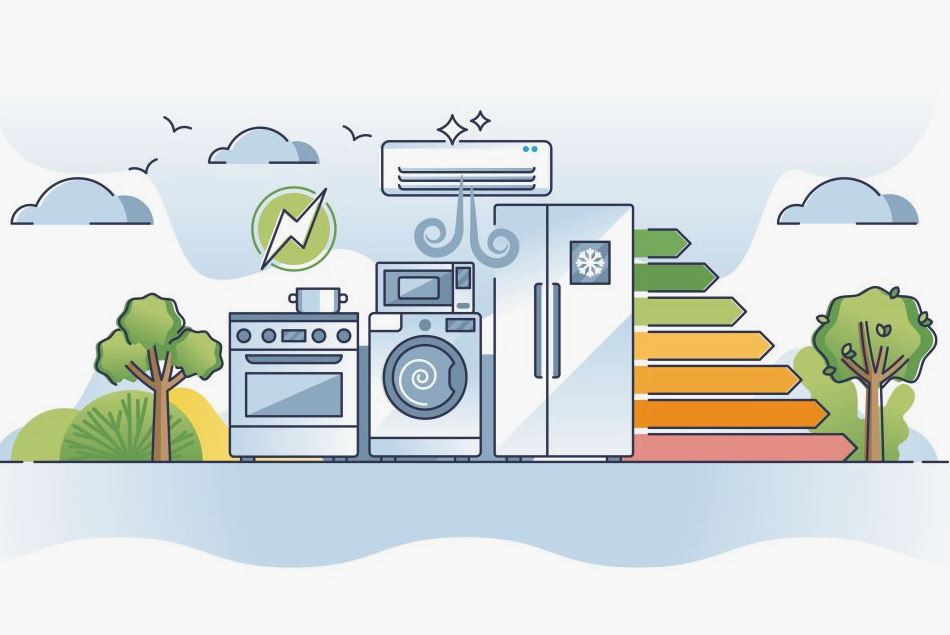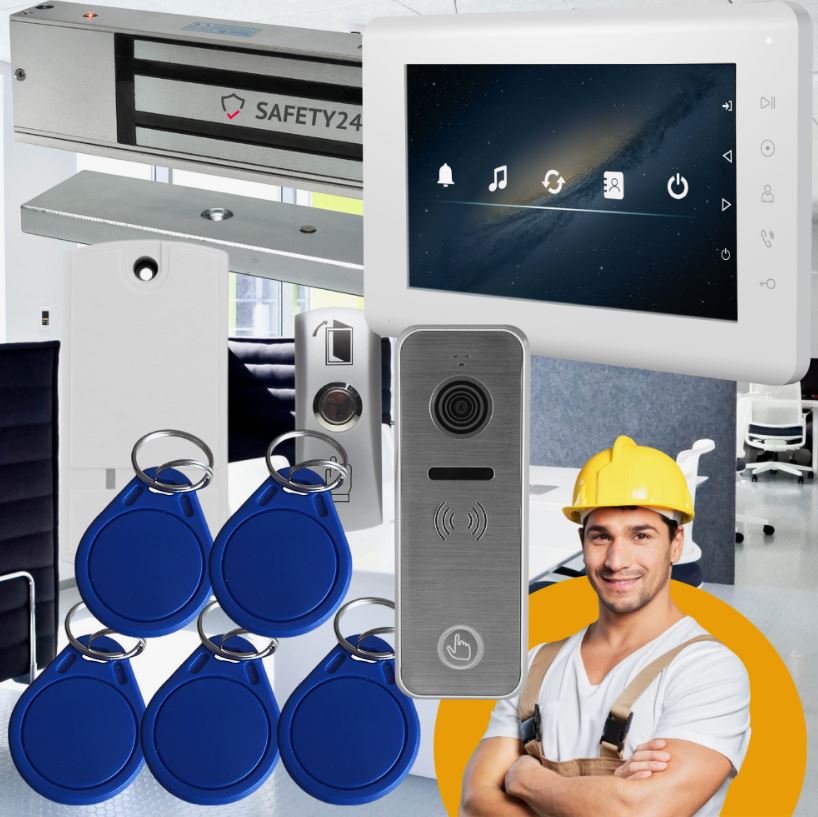When it comes to reducing energy consumption and lowering utility bills, choosing the right energy-efficient appliances can make all the difference. With modern innovations and technological advancements, homeowners now have access to appliances that not only perform better but also consume less energy. This guide will walk you through the key factors to consider when selecting energy-efficient appliances and when to seek professional help from an expert, such as an electrician in Vancouver.
The Importance of Energy-Efficient Appliances
Energy-efficient appliances are designed to use less energy to perform the same tasks as conventional appliances. This results in lower electricity consumption, which benefits both the environment and your wallet. By choosing energy-efficient options, you can reduce your carbon footprint, decrease greenhouse gas emissions, and save on energy costs over time.
Benefits of Energy-Efficient Appliances
- Cost Savings: The most immediate benefit of energy-efficient appliances is the reduction in monthly utility bills. Though energy-efficient models may have higher upfront costs, the savings in energy bills over their lifespan usually outweigh the initial investment.
- Environmental Impact: By reducing the amount of energy consumed, energy-efficient appliances help lower the demand on power plants, reducing harmful emissions that contribute to climate change.
- Improved Performance: Modern energy-efficient appliances often come with advanced features that improve their functionality, durability, and performance, offering better results while using less energy.
Understanding Energy Efficiency Labels
One of the most effective ways to identify energy-efficient appliances is by looking at energy labels. These labels help consumers compare the energy usage of different models and make informed decisions.
1: ENERGY STAR® Certification
The ENERGY STAR® label is one of the most recognized energy efficiency certifications in North America. Appliances that carry this label meet stringent energy efficiency guidelines set by the U.S. Environmental Protection Agency (EPA) and the U.S. Department of Energy. These products use significantly less energy than standard models, often by 10-50%.
2: EnerGuide Label
In Canada, the EnerGuide label provides key information on an appliance’s energy consumption. The label shows how much energy the appliance uses annually, giving consumers the ability to compare energy usage among similar models. Look for appliances with the lowest energy consumption number, as these will be the most efficient.

Factors to Consider When Choosing Energy-Efficient Appliances
Choosing energy-efficient appliances involves more than just checking for an energy label. Several factors can impact the overall efficiency of an appliance, including its size, settings, and installation. Let’s explore some key factors to consider before making your purchase.
1. Appliance Size and Capacity
Bigger is not always better when it comes to energy efficiency. It’s important to choose the right size appliance for your household needs. For instance, a refrigerator that’s too large for a small family will waste energy by cooling empty space. Similarly, a washing machine with a larger capacity than you need will use more water and energy for each load.
2. Usage and Maintenance
How you use and maintain your appliances also plays a role in their energy efficiency. For example, running a dishwasher or washing machine only when they are full helps maximize energy efficiency. Regular maintenance, such as cleaning filters and ensuring proper ventilation, keeps your appliances running efficiently.
3. Smart Technology Integration
Many energy-efficient appliances now come equipped with smart technology features that allow you to monitor and control their energy usage. Smart thermostats, for example, adjust the temperature based on your preferences and usage patterns, reducing energy waste.
4. Energy-Efficient Settings
Many appliances come with energy-saving modes, such as eco or low-power settings. These settings reduce energy consumption during operation, such as lowering the water temperature in washing machines or reducing the heating element in ovens.
5. Lifespan and Durability
When selecting energy-efficient appliances, consider their durability and lifespan. High-quality, energy-efficient appliances may cost more initially but tend to last longer, providing greater savings over time.
Common Energy-Efficient Appliances to Consider
Several household appliances can make a significant impact on energy consumption. Here’s a breakdown of some of the most common appliances where you can prioritize energy efficiency.
Energy-Efficient Refrigerators
Refrigerators run continuously, making them one of the biggest contributors to household energy consumption. When shopping for a new refrigerator, look for models with an ENERGY STAR® label. French-door models tend to be more energy-efficient than side-by-side models, and newer refrigerators use better insulation and temperature regulation technology to reduce energy waste.
Energy-Efficient Washing Machines
Front-loading washing machines typically use less water and energy compared to top-loading machines. Look for models with high spin speeds, as they extract more water from your clothes, reducing drying time. Energy-efficient washing machines often come with sensors that adjust water levels based on the load size, further conserving resources.
Energy-Efficient Dishwashers
Modern dishwashers use less water and energy than older models, and those with ENERGY STAR® certification can significantly reduce water heating costs. Newer models also have soil sensors that adjust the wash cycle based on the dirtiness of the dishes, ensuring efficient use of energy and water.
Energy-Efficient HVAC Systems
Heating and cooling systems account for a large portion of a home’s energy consumption. Consider upgrading to an energy-efficient HVAC system that comes with programmable thermostats and variable-speed motors, which can reduce energy use by adjusting performance based on your needs. Smart thermostats further enhance efficiency by learning your preferences and adjusting the temperature accordingly.
Energy-Efficient Water Heaters
Consider switching to an energy-efficient water heater, such as a tankless or heat pump model, to reduce energy consumption. Tankless water heaters provide hot water on demand, eliminating the need to constantly heat water in a storage tank. Heat pump water heaters use electricity to move heat from one place to another, reducing the energy needed to heat water.
The Role of Electricians in Ensuring Energy Efficiency
Energy-efficient appliances can significantly reduce your home’s overall energy consumption, but proper installation is key to maximizing their benefits. Hiring a professional electrician in Vancouver can ensure your appliances are installed correctly, optimized for energy efficiency, and comply with local electrical codes.

When to Call a Professional Electrician in Vancouver
- Upgrading Electrical Systems: If you’re replacing old appliances with energy-efficient models, an electrician can evaluate your home’s electrical system to ensure it can handle the new appliances’ load. This is particularly important for high-demand appliances such as HVAC systems, electric ovens, and water heaters.
- Installing Smart Home Systems: If your energy-efficient appliances are integrated with smart home technology, an electrician can help set up the necessary infrastructure, such as installing smart switches, thermostats, or electrical panels.
- Addressing Electrical Issues: If you notice frequent electrical surges, tripped breakers, or fluctuating power when using new appliances, it’s time to call a professional. These issues could be signs of an overloaded system, and an electrician can identify and resolve the problem to prevent appliance damage.
- Routine Electrical Inspections: Regular electrical inspections by a certified electrician ensure that your appliances are operating at their peak efficiency and that your electrical system is safe and up to code.
Choosing energy-efficient appliances is one of the best investments you can make for your home. Not only will you enjoy cost savings on your utility bills, but you’ll also contribute to a healthier environment by reducing your energy consumption. When upgrading to energy-efficient appliances, always pay attention to labels like ENERGY STAR® and EnerGuide, consider factors like size, maintenance, and smart technology integration, and ensure proper installation by consulting a professional electrician in Vancouver. By following these guidelines, you’ll be well on your way to a more energy-efficient and eco-friendly home.
Remember, professional help from an expert electrician can help you avoid costly mistakes and ensure your energy-efficient appliances are installed safely and properly, maximizing your energy savings in the long run.




